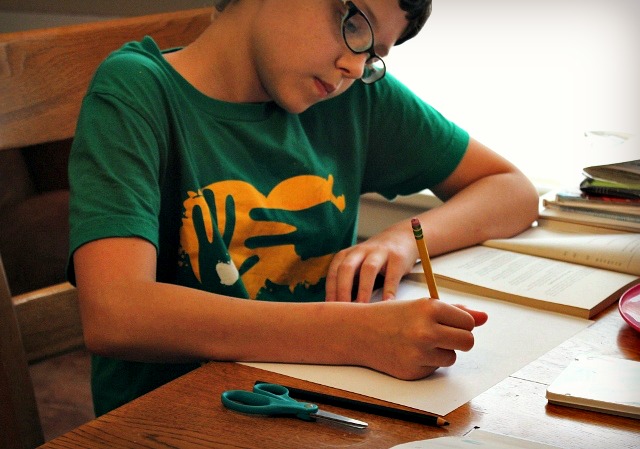When you start with an answer and a formula to get the answer, there is no need for the question.
If there were one question that I wish I could never hear again it would be, “What do I have to know for the test?” The American school system, with its emphasis on grades, tests, and teachers, undermines the most important intellectual skill worth having- a sober mind.
If you can picture an average classroom or even an average homeschool set-up there are a few things you will notice if you look closely. Usually, the teacher or parent is the “information giver”. They choose what topics of study will be presented, gather the materials, and prepare the lesson. The information to be learned is usually presented with tools to understand it. In math, we give formulas and examples. In language arts, we give diagrams and lists of grammar rules.
For the most part, the student plays a very passive role in this process. They expect to be spoon-fed the information, along with the tools needed to evaluate and analyze. Since the teacher is an authority figure, the student never dares question the reliability of his/her methods, the information, or the author of the text.
Students are expected to receive transmissions and parrot them back into tests and other forms of evaluation.
Does anyone see a problem with this?
I found this quote on a website discussing why students resist thinking for themselves in college classrooms:
I just finished my first year of graduate studies, and have found that this is basically what my professors are expecting. They want me to read (usually tons <wink> ) and then analyze or critique or basically examine and come to my own conclusions about the material. The primary problem I am having is that I was raised in the United States and went to school here, and got my undergrad degree in an American liberal arts college. NO ONE TAUGHT ME HOW TO THINK! I have mastered the art of information regurgitation, but I am finding this thinking (examining, analyzing, critiquing) thing absolutely agonizing! In High School I had college prep to get me used to heavy work loads. Why didn’t I have thinking prep as an undergrad to get me used to this new way of learning? I guess the information I am trying to convey . . . is that I feel lost and frustrated and know that most of my classmates feel the same way.
Please, teach us how to do it (think for ourselves) before demanding that we do anything other than parrot ideas we think you want us to have. Because that latter is all we have ever know (in most cases).
By the way, it is agonizing, but exciting and rewarding to actually be discovering my own ideas about stuff. -quote from this site
I hear the same sentiments being expressed all over the country. Grown men and women coming to the realization that they have sat back and passively absorbed information for much of their life without really using their intellect.
In the Bible, both Peter and Paul warned their fellow believers over and over again to be sober-minded, watchful, and leery of accepting teaching without analyzing its assumptions, conclusions, and effects.
We need to make sure our students do the same.
But how do we do that? If we are already in a position of authority over some students, even our own children, we must step back and ask ourselves some questions about our methods of teaching:
- Do we allow students to ask questions and clarify statements?
- Are we providing an environment where the student is motivated to find the answers?
- Am I dogmatic about what resources and tools are used?
There is a great list of teaching tactics over at cricitalthinking.org that can help you see how to get by with giving less.
The movie Dead Poets Society illustrates exactly the point I am trying to make here. If you notice the students’ reaction at the beginning, they are blindly accepting whatever their teacher and the textbook have to say about studying poetry. Throughout the movie, Professor Keating habitually attempts to get his students to develop their own sober mind. In the end, the problems they face have nothing to do with Keating’s methods or the boys, but in society still wanting control of how they think.
- The Importance of Developing a Sober Mind in Our Students - February 22, 2019
- Teaching Children At Natural Development Points - February 21, 2019
- Dealing With The Fears Of Unlimited Game and Media Time - January 20, 2019


